The sorry story of salt, and how we got fooled, again!
Have we been tricked into thinking salt is unhealthy, when actually it is vital to life and health? I believe so.
When people are arguing about how healthy a food is, I like to go back to “first principles”. And for me, the first question is: what did our ancestors do? The best way I know how to check that is to see what Weston A Price found when he visited healthy societies, who were eating their traditional foods.
One of the commonalities he found was that all societies ate salt. In fact, they regarded salt as so important that they would trade with their enemies to get it.
Did they know why it was important? No, probably not. What they did know was that certain foods kept them healthy, and certain foods made them sick. Certain foods needed special ways of preparation, and some didn’t. This was knowledge passed down generation by generation after eons of trial and error.
So this tells me that there is something important about salt that we are not being told.
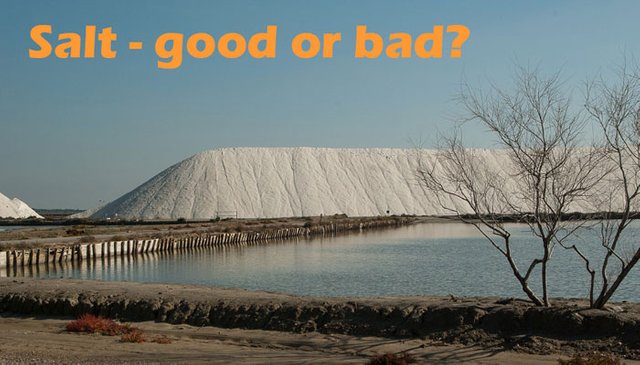
But first, let’s differentiate between types of salt.
Real Salt
Salt as it comes out of the ocean or from mineral deposits. It has a range of minerals, including all the trace minerals that we need in tiny quantities. Yes, it is primarily sodium chloride, but not solely. And it turns out, we need a lot of sodium and chloride for optimal biochemistry.
You can tell real salt, because it isn’t white. It might be grey, or pink, or even beige. But if it’s pure white, it probably doesn’t have the full range of minerals.
It might be labelled celtic sea salt, or Himalayan salt.
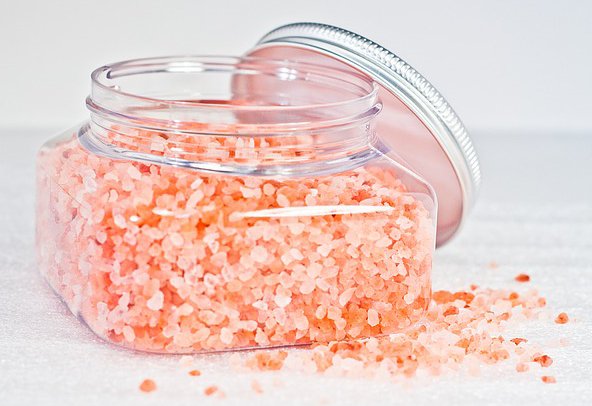
Supermarket salt
This is salt that has had all of the minerals except sodium chloride stripped out. Then we need to add some chemicals to make it flow nicely out of the containers, because heaven forbid it should stick. Oh, and we will add some iodine back, to prevent goitres.
Which one shall we choose?
You already know which one I’m going to choose, don’t you?
Now, iodine deficiency IS a problem, because our soils have largely been depleted, so I understand why the iodine is added back. But the other two changes outweigh that. We need to address iodine deficiency another way, but that’s a post for another day.
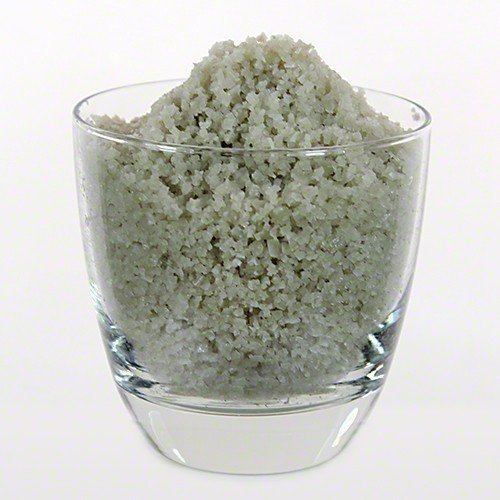
I’ve chosen my salt, now what?
Just use it. Use it with gay abandon – the old definition of gay, that is, not the modern one.
Add it to your food, till the food tastes good.
Add a pinch to your drinking water, to help absorption and to add minerals.
As @krazdang pointed out in her recent article, food manufacturers reduced the amount of salt and fat in many processed foods, then started adding sugar instead for flavour. So you might find that you can use less sugar if you start using salt again.
Ancestral wisdom not convincing enough?
Fair comment. Let’s dig a little deeper.
In 2011, Sally Fallon Morell, president of the Weston A Price foundation, wrote about Why Salt is Essential to Health and Happiness. She says:
Salt provides two elements that are essential for life and for good health: sodium and chloride ions. They are both elements that the body cannot manufacture itself so it must be supplied by food… While sodium is present in a variety of foods, chloride is not; adequate chloride must be obtained from salt.
She goes on to explain why salt is vital for good health, being needed for these functions:
• Regulating blood volume and pressure, including the flexibility of the blood vessels.
• The firing of the nervous system neurons.
• Sodium-dependent enzymes are required for carbohydrate digestion, to break down complex carbohydrates and sugars into monosaccharides such as glucose, fructose and galactose; sodium is also involved in transporting these monosaccharides across the intestinal wall.
• We also need salt for digesting fats as sodium is involved in the manufacture of bile, which emulsifies fats so that they can be absorbed.
• Salt is critical for development of the glial cells in the brain.
• Adrenal function
I’m not going to go into more depth here, but her article explains a lot more, and also talks about the history of salt.

Another good article, from 2012, is Exposing Mainstream Myths by Morton Satin.
Check it out here if you’d like a breakdown of why the myths we believe about salt are proven wrong. One of the things he says is:
Reduced salt intakes have repeatedly been linked in the medical literature to the following conditions:
• Insulin resistance (diabetes)
• Metabolic syndrome
• Increased cardiovascular mortality and readmissions
• Cognition loss in neonates and older adults
• Unsteadiness, falls, fractures
• Lifelong avidity for salt
Hmm, do some of those look familiar?
They should, they are becoming rampant in our modern society.
That’s one reason that I, for one, would like to see us all go back to basics, and just eat real food, like our ancestors before us.
Thanks for reading
Photos by myself, @sift666 or from Pixabay, unless otherwise stated.
Follow me for more health, nutrition, food, lifestyle and recipe posts.
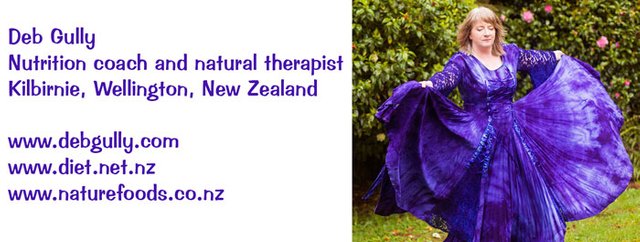
Contact me in Discord, SteemitChat, or through Peerhub to ask about one on one nutritional coaching or EFT (Emotional Freedom Technique) sessions by Skype. Bitcoin, Steem or Paypal accepted.
Some of my previous posts on NUTRITION:
• The wide variety of healthy diets out and what they have in common
• The travels of Weston A Price and his discoveries about healthy diets
• Good fats vs bad fats
• DNA testing for better Health & Fitness
• DNA testing part 2: How Well Do I Digest Carbs?
• DNA testing Part 3: I can’t eat Carbs & How to Manage that
• About the Gut & Psychology syndrome (GAPS) diet Part 1 – Can it help autism?
• GAPS diet Part 2: Foods we can’t have
• GAPS diet Part 3: Foods we CAN have
• GAPS diet Part 4: What if I can’t eat some animal foods
• Salicylate intolerances
• Introduction to the Paleo diet
• How to get started on a Real Food diet Part 1
• Why use Real Food diets for healing
• How to get started on a Real Food diet Part 2
• We did a three day water fast
• Comparison of different diets – which is for you?
• Should you eat Dairy? Part 1: Pasteurisation
• Cashews and the Paleo diet
• Should you eat Dairy? Part 2: Quality


Hello @kiwideb,
Congratulations! Your post has been chosen by the communities of SteemTrail as one of our top picks today.
Also, as a selection for being a top pick today, you have been awarded a TRAIL token for your participation on our innovative platform...STEEM.
Please visit SteemTrail to get instructions on how to claim your TRAIL token today.
If you wish to learn more about receiving additional TRAIL tokens and SteemTrail, stop by and chat with us.
If you choose not to receive any comments or TRAIL rewards from SteemTrail, you can reply with "Stop" to opt out. Thank you.
Happy TRAIL!
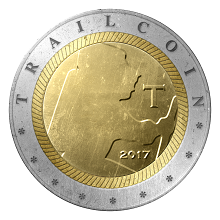
thanks!
Hello, @kiwideb!
Thanks for this spectacular article! I love it on so many levels!
You're doing us a great service by combating the disinformation we've been spoon-fed by the medical/industrial/pharmaceutical establishment.
I also appreciate that you've taken a stab at recovering the original sense of the word "gay," thanks for that.
Real food... What a grand concept! Thanks so much! 😄😇😄

It's so simple, really - just real food. We've been hoodwinked, but no more!
Once the phrase "gay abandon" came into my mind, nothing else quite expressed it, so there was no choice :-)
Glad you enjoyed.
All things in moderation, right?
I guess just going for the least processed food most of the time is a good way to live.
For most people, yes, moderation and making the best choices you can is enough. After all, stressing too much about what we eat is harmful too. (Though some people need to be 100% if they're really ill.)
Fantastic post!
Thanks. For a foodie like you, you must be sick of hearing what we shouldn't eat, so hopefully it helps to know something is still ok!
I try to use sea salt as much as possible. Sometime when we get it, it is still damp from the ocean.
How perfect!
Sodium was scarce for almost all of cellular evolution. However potassium was more plentyful, as a result of this our cells evolved to exist with high potassium levels but lower sodium levels. Sodium was so scarce in fact that cells evolved pumps to bring it in. However in modern times sodium is plentyful thanks to technology, but our cells still work as though it isn't. So while your advice to use natural salt is good, I would hesitate to "use it with reckless abandon" as too much sodium is still bad. Our cells pump sodium in well even when it's availability is low. They pump even more (too much) in when it's concentration is high.
This is one reason in our world of preprocessed heavily salted foods that people have issues. Societal sodium intake is just way too high.
Use good salt, however still practice moderation. Our biochemistry evolved to seek out salt.
I didn't quite say "reckless" but I take your point.
Yes, I agree that people eating a lot of pre-packaged foods are probably getting enough, or more than enough.
But in the context of real food, I still think we can add salt to taste. When it's natural, and not engineered, if we use excess salt, it will taste nasty. So there is an inbuilt control mechanism on our intake.
I personally try to avoid all unnecessary salt intake, I have actually become accustomed to it and I find most people's salt to taste amount of salt to be way too much. I dunno perhaps I am too much of a proponent of low salt.
You're certainly not wrong, in the end I was just trying to discuss the cellular biochemistry of sodium import. We are really designed to import the sodium and get rid of the potassium. And that fact is derived from the environment life developed in many millions of years ago :D
It's good to be able to discuss the scientific angle (which you always do so well and thoroughly) as well as the more anecdotal. I appreciate you contributing to the information here for everybody to consider and learn from.
One thing that is hard to quantify is biochemical individuality, not just about salt, but about all foods and even activities.
I would encourage people, if they have ill health of any kind, to look at all of their intakes to determine which might be causing the problem. Evaluating in a case by case way, rather then knee jerking. Not that I'm accusing you of that! But many people just believe what they are told.
I usually try to follow what the data indicates, however I am likely in a better position to read the primary articles and know whether the experiments described are actually testing what they claim (poor experimental design is a common thing ... Hopefully not in my papers... But that's for my reviewers to yell at me about!). For a non scientist I can imagine that much of what is reported seems no different from magic. To me it seems that people also find that much of the data conflicts some other data and so they really don't know what to think.
My goal over time is just to keep presenting and talking about the basics over and over again to hopefully allow at least a few people to have a better ability to sift through the magic and pull out the facts being reported. So thank you for your complements, that means I must be doing something right.
Your right that a core tenant of good health is good eating, people should really take time to evaluate what they are eating and what the longterm impact may be. One does not have to fix everything, but trying to make small proactive changes can go a long way to keeping a variety of chronic diseases at bay.
Anyway lovely chatting with you!
I have found that choosing the highest nutritionally dense foods that we have available to us and then not overconsuming or underconsuming it is a collection of learned skills. Of course the nutritional ratios of vital minerals, vitamins and enzymes are different for each person, so we start with a good foundation of base knowledge and then start fine tuning. This also means that we need to build personal evaluation skills at the same time, so that we can respond to and make adjustments to our biological fueling practices as we go. We need to be able to read what our bodies are communicating to us and then make adjustments to our practices as we go. The first step is to look at each critical component like sodium, potassium, calcium and magnesium and understand what each does why makes those components are essential and vital to life. Thank you for "un-demonizing" salt and suggesting that it is a component that requires respect with use. It is a great discussion topic. We're are dead without it and dead if we take in too much.
I believe that the more we eat real food, and can feel what it does in our bodies, the more likely we are to eat appropriately. Not always of course, because we can still be addicted to real food. But with real food, we can actually taste what the salt does, and I think are less likely to overdo it.
I completely agree.
Still I think everything in moderation is better.
I replied to someone else - "In the context of real food, I still think we can add salt to taste. When it's natural, and not engineered, if we use excess salt, it will taste nasty. So there is an inbuilt control mechanism on our intake." I think that will lead to moderation.
Yup, real food made without the artificial or hyped up levels of unhealthy additives that is pumped into ready made food for mass consumption. Love this article
Yeah that's all I ask - real food without all that other shit, like you said. Eventually, we will prevail!
Yes indeed, we will make an end to the tosh!!! :0)
Congratulations! Your post has been nominated by the Paleo-Trail discussion group to the Steemtrail voting group. They will be considering your post for their group vote.
Thanks for using the #paleo tag and please join us for discussion and lots of great information, stories and support.
(Voted and resteemed)
My cardiologist told me that the whole "salt is bad for blood pressure" argument is totally fallacious, based on one study that was completely debunked back in the 70's. I was doing some outside work and getting weak and dizzy. He told me I needed salt...his exact words were "Your body has salt in it and if you don't have salt, you die!" Great article...upvoted & followed.
It's amazing how theories can be totally debunked but still they are repeated and believed, decade after decade.
A good deal of the salt "myth" has been perpetuated by doctors!
We need to remember that doctors have little training in nutrition. So they often just repeat what they are taught, without continuing to evaluate it. So tempting as it is to blame doctors, I try and remember it's the system, not the individual, at fault.
Sounds like you were lucky to have a good cardiologist! Hopefully he was as enlightened about saturated fats.
Its good to see good doctors around.